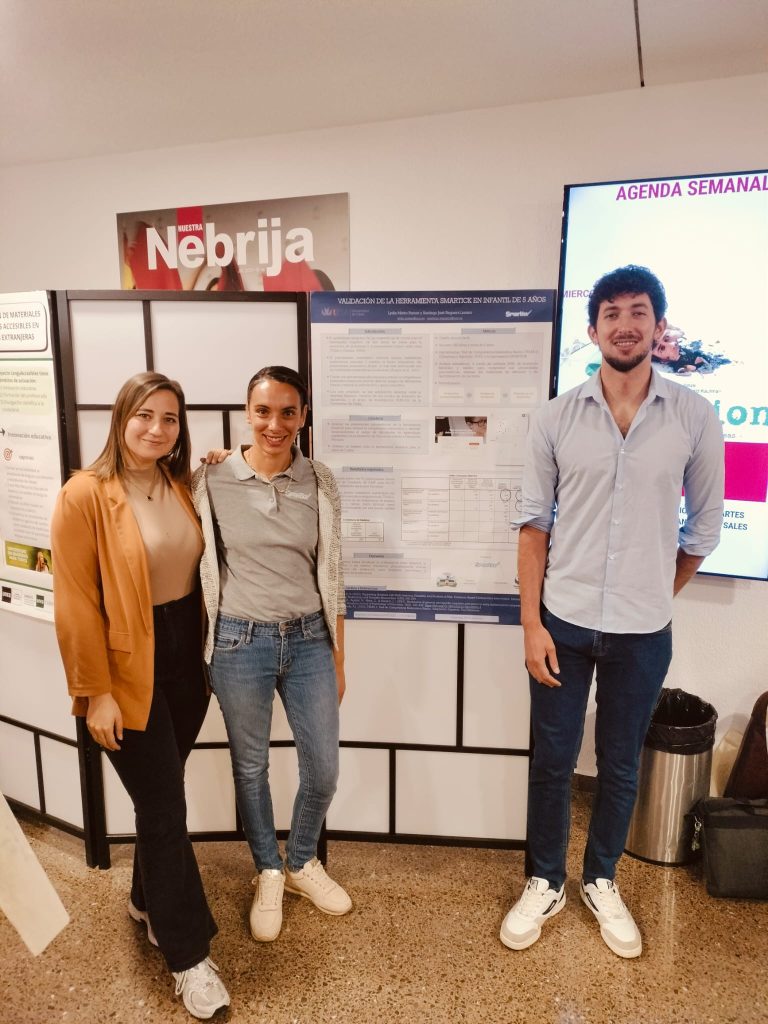El pasado 25 de abril Lydia Mateo Ramos y Santiago J. Reguera Lozano, predoctorales del grupo HUM634 obtuvieron el premio EdTech Académico en reconocimiento a la mejor investigación presentada basada en herramientas EdTech.
La investigación se presentó en formato póster y trató sobre un proyecto de validación de la herramienta Smartick, empresa con la que recientemente se ha firmado un convenio de colaboración. Esta herramienta se propone para el cribado del riesgo en padecer dificultades de aprendizaje matemático. Se propone la validación en edades más tempranas para actuar lo antes posible a través de intervenciones educativas.
Esto tuvo lugar en el I Encuentro Nebrija Edtech organizado por la Universidad de Nebrija (Madrid). El evento tuvo el objetivo de reunir empresas desarrolladoras de herramientas digitales de evaluación e intervención educativa con universidades y escuelas. Durante el evento, se presentaron las diferentes empresas, tras lo que se realizó un debate sobre el uso de la tecnología en las aulas y culminó con la entrega de premios.
Más información sobre los detalles del evento pinchando aquí.


